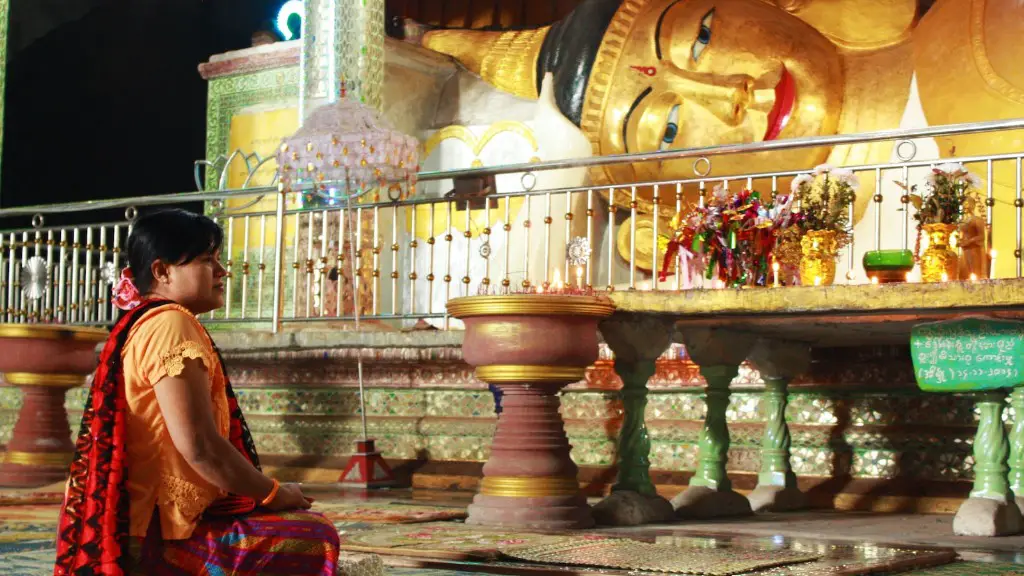What Is The Most Important Holiday In Christianity?
The most important holiday in Christianity is Easter, being the commemoration of the resurrection of Jesus Christ. Easter Sunday is a major Christian festival and holiday, celebrating the resurrection of Jesus from the dead as described in the New Testament. It is seen as the most important religious holiday of the Christian year, and is celebrated worldwide.
Drawing on the ancient Jewish practice of Passover, the story of the resurrection was told through the breaking of bread, hymns, and joyous celebrations. With the subsequent rise of Christianity and its influence in the Western world, countless Easter traditions have emerged and become commonplace. From religious services to processions, parades and family feasts, these annual customs add an enduring sense of joy, hope, and renewal to the lives of millions of believers around the world.
The significance of Easter lies in the definition of a Christian life based on the resurrection of Jesus. Jesus’ resurrection from the dead is seen as a sign of His victory over death and new life for believers. It marks the triumph of good over evil and offers a glimmer of hope in dark times, reminding believers that the future is one of redemption and new beginnings.
Easter is observed by Christians around the world in a variety of ways. Some may choose to participate in religious services that focus on the story of the resurrection and sermons devoted to Jesus’ victory over death. Others may take part in communal activities such as Easter egg hunts, feasts, and parades. The timing and method of celebration depend on the particular culture and region of the world in which one lives.
Religious scholars believe that Easter is the perfect time to not only reflect on the resurrection but also to draw focus to other key aspects of Christian faith. These include repentance, forgiveness, hope and charity towards those less fortunate. It is also seen as an ideal moment to draw closer to God and to consider one’s own personal relationship with Him.
Alongside being widely recognised as the most important holiday in Christianity, the powerful message of Easter extends beyond the realm of the faithful. It is seen by many as an opportunity for reflection, celebration, and rejuvenation – regardless of religious background or beliefs.
Family Celebrations
In many Christian households, Easter is a time for families to reconnect as well as to celebrate the resurrection of Christ. Often, family members gather from far and wide to share meals and exchange gifts. Easter egg hunts, dyeing eggs and hide-the-basket games are usually part of the annual family celebrations.
In some denominations, the Easter period is a certain time when families meet, sing songs and exchange Easter foods, such as the famous Easter cake. Rarely is the Easter period used to settle old scores, putting the brethren into an atmosphere of love and peace.
No matter where they come from, the food at Easter is one of the most important aspects of the day. Especially in many European countries, a large meal is shared by the family members with Easter eggs, hot cross buns, candy, ham and lamb being traditionally served.
Also, during Eating, many people opt to give to others, with most churches using the occasion to raise funds for charity projects. During this period, major charities receive increased donations and increased support from many individuals and organisations.
In addition to family gatherings, churches and other religious organisations often host Easter events to commemorate this prominent Christian holiday. From sunrise services to religious pageants, these events bring together thousands of people for an enlightening Easter experience.
The Significance of Easter Sunday
Easter Sunday marks the feast day of Jesus Christ’s resurrection from the dead. It is celebrated by Christian’s around the world each year in a state of joy, excitement and reflection. For the Christian community, Easter Sunday is the most important festival of the Christian year.
Easter, more commonly known as Resurrection Sunday, celebrates the bodily resurrection of Jesus Christ which occurred three days after his death and burial. The story of Jesus Christ’s resurrection is shared in all four Gospels with the New Testament – Matthew, Mark, Luke, and John – and forms part of the core message of Christianity.
Jesus’ resurrection is believed to have been an event in which an earthly death gave way to an immortal life. It is seen as a promise from God of eternal life to those who believe in Him. In an age of physical death, Jesus’ resurrection is seen as a beacon for hope for many Christian’s. It proves true power comes not through human endeavour, but through trusting and believing in the power of God.
Each year during Holy Week, the week leading up to Easter Sunday, the deliberate process of reflecting on Jesus’ death, burial and resurrection is enacted by many Christians. This may include prayer, fasting, special services in the church or evening devotions. Additionally, some Christian denominations celebrate the days of Jesus Christ’s last week leading up to his resurrection – from Palm Sunday to Good Friday – with a celebration of His victory over death.
Easter Egg Hunts
A well-known Christian tradition for Easter is the Easter egg hunt. This popular custom usually involves children and families, who participate in a search for chocolate eggs or other candies or treats that are hidden around an Easter event. It is believed that this tradition dates back centuries, to a time when eggs were given to celebrate the coming of spring.
In modern times, the Easter egg hunt is a beloved pastime and a symbol of renewal and hope, as children search and explore over the course of Easter weekend. Its message of good fortune and reward commemorates the journey of Jesus Christ as He left the tomb. With this hopeful custom, the promise of the resurrection becomes alive to believers of all ages.
The Easter egg hunt tradition has evolved with the times, as chocolate companies have now produced plastic eggs with small prizes or trinkets inside. Children often search for their eggs in colorful baskets bearing the name of Jesus. They may also be greeted by surprises such as a real-life Easter bunny, giving them an opportunity to feel the joy and excitement of Easter.
In many countries, Easter egg hunts are hosted by local churches, community groups and Scout organisations. People from all walks of life are invited to participate in these events, where they can learn the story of Easter, enjoy activities and set off on a namesake Easter egg hunt.
What Does Easter Represent?
Easter is considered by many to be the most significant day in Christianity, as it symbolizes hope, love, and eternity. Each year, millions of Christians across the world gather to celebrate Easter and to contemplate the powerful message of Jesus’ resurrection. It is seen as a time of reflection, hope, and renewal.
The message behind this special Christian holiday is one of joy and celebration. Through Jesus’ sacrifice on the cross and resurrection from death, He demonstrated power and mercy, and offered life everlasting to those who believe in Him. His story is deeply moving and comforting, bringing feelings of joy and peace to the nations.
The Easter season of Lent is also a time of preparation, leading up to Easter Sunday which symbolizes the joy of new beginnings. For Christians, this holiday holds particular significance as a reminder of Jesus’ victory over death, of His glorious resurrection, and of their own faith’s promises of redemption, joy and life everlasting.
Symbols of Easter
Easter is celebrated with a wealth of symbols, such as lilies, eggs, butterflies, and lambs. All of these symbols have deep roots in Christianity and each serve to remind those celebrating of Jesus’ resurrection from death.
The lily, a symbol of purity, is a common Easter flower used in churches and homes throughout the season. The egg symbolizes new life, representing Jesus’ resurrection from the tomb and the new life He offers to believers. Other symbols, such as butterflies and lambs, also signify rebirth and hope, enchanting Christian worshippers throughout the Easter period.
In addition to these iconic symbols, many Christians adorn their homes with Easter decorations such as bunnies, painted eggs and baskets of all sizes. These decorate the events and ceremonies during Easter, with celebrants often leaving their houses in a festive spirit.
Since Easter is the most important holiday in Christianity, the symbols, customs and traditions associated with it have a profound importance to the lives of believers. These symbols remind those celebrating of Jesus’ resurrection and His incredible victory over death.

